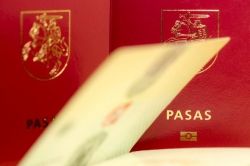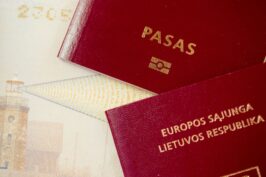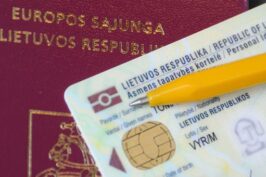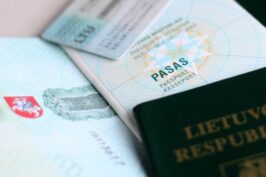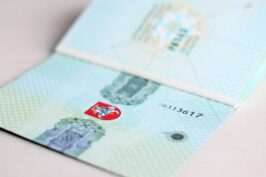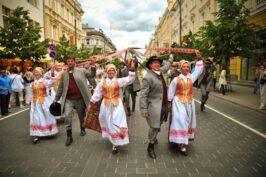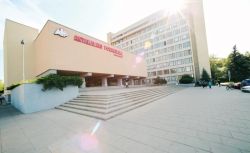Lithuanian citizenship
Lithuanian citizenship
Lithuanian citizenship is a permanent legal relationship of a person with The Republic of Lithuania, based on mutual rights and obligations.
Lithuanian Citizenship is acquired by:
1. birth;
2. citizenship restoration;
3. being granted Lithuanian citizenship.
Lithuanian citizenship by descent
Persons whose ancestors (parents, grandparents and great-grandparents or one of them) were Lithuanian citizens before 15 June 1940 have the right to reinstate Lithuanian citizenship.
Lithuanian citizenship can be reinstated by renouncing the current citizenship or without renouncing the current citizenship (dual or multiple citizenship).
Reinstatement of Lithuanian Citizenship While Renouncing the Current Citizenship
The persons who held Lithuanian citizenship prior to 15 June 1940 and their descendants shall be able to reinstate Lithuanian citizenship if they are not citizens of a different state or they want to renounce their current citizenship.
Conditions for reinstatement Lithuanian citizenship with renunciation of current citizenship:
- Lithuanian citizenship before 15 June 1940.
Eligibility for reinstatement Lithuanian citizenship with renunciation of current citizenship
The person was a Lithuanian citizen before 15 June 1940 or the person is a descendant (child, grandchild, great-grandchild) of a person who had Lithuanian citizenship before 15 June 1940.
Reinstatement of Lithuanian Citizenship with Renunciation of Current Citizenship
| Requirement | Description |
|---|---|
| Held Lithuanian Citizenship before 15 June 1940 | The applicant or their ancestor (parent, grandparent, or great-grandparent) was a citizen of Lithuania before 15 June 1940. |
| Renunciation of Current Citizenship | The applicant must not hold another citizenship or must be willing to renounce it to restore Lithuanian citizenship. |
| Descendants’ Eligibility | Descendants (children, grandchildren, great-grandchildren) of pre-1940 Lithuanian citizens are eligible to apply. |
Lithuanian citizenship to descendants of Lithuanian citizens with renunciation of existing citizenship
A person has the right to acquire Lithuanian citizenship if he/she is a descendant of a person who was a citizen of Lithuania before 15 June 1940, i.e. the person’s ancestors: father, mother, grandfather, grandmother, great-grandfather and/or great-grandmother, or one of them was a citizen of Lithuania before 15 June 1940 or the person himself/herself was a citizen of Lithuania before 15 June 1940.
If there is evidence that the person or his/her ancestors were citizens of Lithuania before 15 June 1940, the person has the right to apply for the reinstatement of Lithuanian citizenship with the renunciation of the current citizenship.
Reinstatement of Lithuanian Citizenship While Retaining the Current Citizenship (Dual Citizenship)
The requirement to renounce citizenship of a different state is not applied to persons who can be citizens of both the Lithuania and a different state, in accordance with the Law on Lithuanian Citizenship article 7 subsections 2, 3, and 4, i.e.:
- the person who was exiled from the occupied Republic of Lithuania prior to 11 March 1990 and has acquired citizenship of a different state;
- the person who left Lithuania prior to 11 March 1990 and acquired citizenship of a different state;
- the person who is a descendant of a person mentioned above.
Conditions for reinstatement Lithuanian citizenship without renunciation of current citizenship (Dual, multiple citizenship):
- Lithuanian citizenship before 15 June 1940;
- departure from Lithuania before 11 March 1990; or
- exile from Lithuania before 11 March 1990.
Eligibility for Lithuanian citizenship (Dual, multiple citizenship)
The person was a Lithuanian citizen before 15 June 1940 or the person is a descendant (child, grandchild, great-grandchild) of a person who had Lithuanian citizenship before 15 June 1940 and the person or his/her ancestors (parents, grandparents or great-grandparents) left Lithuania before 11 March 1990 or were exiled.
Reinstatement of Lithuanian Citizenship While Retaining Current Citizenship (Dual Citizenship)
| Requirement / Condition | Description |
|---|---|
| Lithuanian citizenship before 15 June 1940 | The applicant or their ancestor (parent, grandparent, or great-grandparent) held Lithuanian citizenship before 15 June 1940. |
| Left Lithuania before 11 March 1990 | The applicant or their ancestor voluntarily left Lithuania before 11 March 1990. |
| Exiled before 11 March 1990 | The applicant or their ancestor was exiled from the occupied Republic of Lithuania before 11 March 1990. |
| Descendants’ eligibility | Children, grandchildren, and great-grandchildren of persons who meet the above conditions are also eligible for dual citizenship. |
| Retention of current citizenship allowed |
Applicants who meet these conditions are not required to renounce their current citizenship and may hold Lithuanian citizenship alongside another. |
Dual, multiple citizenship for descendants of Lithuanian citizens
Dual citizenship is possible for descendants of Lithuanian citizens if they are descendants of a person who was a citizen of Lithuania before 15 June 1940, i.e. the person’s ancestors: father, mother, grandfather, grandmother, great-grandfather and (or) great-grandmother, or one of them was a citizen of Lithuania before 15 June 1940 or the person was a citizen of Lithuania before 15 June 1940 and left Lithuania before 11 March 1990, except for leaving for the former territory of the Soviet Union after 15 June 1940, or the person and (or) his ancestors were exiled from Lithuania before 11 March 1990.
If there is evidence that the person or his ancestors were citizens of Lithuania before 15 June 1940, and the person or his ancestors left Lithuania before 11 March 1990, except for leaving for the former territory of the Soviet Union after 15 June 1940, or the person and (or) his ancestors were exiled from Lithuania before 11 March 1990, a person has the right to apply for the reinstatement of Lithuanian citizenship without renouncing their current citizenship. In this case, dual or multiple citizenship is possible, when a person can become a Lithuanian citizen and retain the citizenship of his country or countries of which he is a citizen.
In other cases, Dual Citizenship in Lithuania can be Acquired by persons who:
- gained Lithuanian citizenship and citizenship a different state by birth;
- gained a foreign citizenship by virtue of marriage to a citizen of a different state;
- provided they were adopted by a citizen (-s) of Lithuania before reaching 18 years of age and, as a result of the adoption, acquired Lithuanian citizenship;
- provided they, being citizens of Lithuania, were adopted by a citizen (-s) of a different state before reaching 18 years of age and, as a result of the adoption, acquired citizenship of that state;
- acquired Lithuanian citizenship by way of exception while being a citizen of a different state;
- acquired Lithuanian citizenship while having a refugee status in Lithuania;
- retained Lithuanian citizenship or who has citizenship of the Republic of Lithuania restored for his outstanding merits to the Republic of Lithuania;
- acquired citizenship of the Republic of Lithuania while having refugee status in the Republic of Lithuania;
- acquired Lithuanian citizenship by birth and acquired citizenship of another state until he turned 18 in other way than by birth.
Lithuanian citizenship to persons of Lithuanian origin
A person has the right to be granted Lithuanian citizenship as a person of Lithuanian origin if the person’s father, mother, grandfather or grandmother, or one of them is Lithuanian (nationality, national affiliation, not Lithuanian citizenship) and the person considers himself/herself to be Lithuanian. In this case, the simplified procedure for Lithuanian citizenship is applied, during which the citizenship of a foreign country is required to be renounced. Dual citizenship or multiple citizenship is not possible in this case.
Conditions for granting Lithuanian citizenship under a simplified procedure
- a person is of Lithuanian origin (the person’s parents, grandparents or one of them are Lithuanians).
Eligibility for Lithuanian citizenship on the basis of Lithuanian origin
A person is a person of Lithuanian origin – a person whose parents, grandparents or one of them are Lithuanians and who considers himself Lithuanian and declares this in a written statement.
Lithuanian Citizenship for Persons of Lithuanian Origin (Simplified Procedure)
| Requirement / Condition | Description |
|---|---|
| Lithuanian origin | At least one parent or grandparent (father, mother, grandfather, or grandmother) is Lithuanian by nationality (not necessarily by citizenship). |
| Self-identification as Lithuanian | The person must consider themselves Lithuanian and confirm it in a written statement. |
| Simplified procedure | Citizenship is granted through a simplified process due to Lithuanian origin. |
| Renunciation of current citizenship required | The applicant must renounce their current foreign citizenship. |
| Dual or multiple citizenship not allowed |
Dual citizenship is not permitted under this basis. |
Can I get a free legal assessment of my chances of acquiring Lithuanian citizenship?
Free Legal Assessment: Lithuanian Citizenship Eligibility
Yes, the lawyers of MIGRATION LAW CENTER offer a free legal Assessment (analysis) of your options for obtaining Lithuanian citizenship. To receive a detailed analysis, please complete an application form by clicking this link – FORM.
Following a thorough legal analysis of your options that would allow to obtain Lithuanian citizenship, our lawyers will provide you with a written response (analytical results) regarding your options of obtaining Lithuanian citizenship and further requirements as well as procedure processes.
Other cases of acquisition of Lithuanian citizenship:
Lithuanian citizenship can be acquired: by birth, by naturalization, by way of exception, by restoration of Lithuanian citizenship.
Acquisition of Lithuanian Citizenship by Birth. Child’s citizenship
A child, both of whose parents are Lithuanian citizens, shall be a citizen of Lithuania regardless of whether he was born in the territory of Lithuania or beyond its borders.
A child adopted by a Lithuanian citizen (-s) shall become a Lithuanian citizen.
A child who is a Lithuanian citizen and who is adopted by a citizen (-s) of a different state retains the Lithuanian citizenship regardless if he acquired citizenship of a different state due to adoption.
A child born in the territory of Lithuania, whose parents are stateless persons habitually resident in Lithuania, shall acquire citizenship of Lithuania.
A child found in the territory of Lithuania, both of whose parents are unknown, shall be considered born in the territory of Lithuania and shall be a Lithuanian citizen, unless circumstances are disclosed whereupon the child would acquire a different status.
Naturalisation
A person can be granted Lithuanian citizenship if he:
- Has been residing in the territory of Lithuania for the last 10 years;
- Has the right to habitually reside in the territory of Lithuania;
- Has passed the examination in the state language;
- Has passed the examination in the basic provisions of the Constitution of the Republic of Lithuania;
- Has a legal source of income;
- Is a stateless person or notifies in writing of his will to renounce citizenship of another state held by him;
- Meets other requirements laid down in the Law on Citizenship of the Republic of Lithuania.
Lithuanian citizenship based on marriage
The spouse, husband or wife of a Lithuanian citizen has the right to apply for a residence permit in Lithuania or an EU citizen’s family member card in Lithuania and, after at least 7 years of living with the Lithuanian citizen in Lithuania, for the granting of Lithuanian citizenship through naturalization.
Acquisition of Lithuanian Citizenship by Way of Exception
The citizenship is granted by the president of the Republic of Lithuania.
Restoration of Citizenship of the Republic of Lithuania
A person who has lost Lithuanian citizenship may have it restored to him upon his application. The request for restoration of Lithuanian citizenship shall be submitted to the president of Lithuania through competent authorities.
The application is a certain type of form that must be completed in Lithuanian language. Other foreign language documents supporting the application must be translated into Lithuanian and certified by a translator. Copies of those documents must be certified by a notary. Documents issued by foreign countries must be legalized or come with an Apostille certificate, unless international agreements of the Republic of Lithuania and European Union law do not provide otherwise.
Renunciation of Citizenship of the Republic of Lithuania
The right of a Lithuanian citizen to renounce citizenship may not be restricted.
A person’s application for renunciation of Lithuanian citizenship shall be submitted to the Minister of the Interior or the institution authorised by him.
The application for renunciation of citizenship needs to be completed in Lithuanian language. Other foreign language documents supporting the application must be translated into Lithuanian and certified by a translator. Copies of those documents must be certified by a notary. Documents issued by foreign countries must be legalized or come with an Apostille certificate, unless international agreements of the Republic of Lithuania and European Union law do not provide otherwise.
Documents that support the application for renunciation of citizenship of the Republic of Lithuania:
- Documents certifying Lithuanian citizenship;
- Personal identification document issued by a foreign body (if such was issued);
- Documents issued by competent foreign authorities stating that the person is a national of that state or shall acquire citizenship of that state after losing Lithuanian citizenship.
The main stages of acquiring Lithuanian citizenship
The stages of the process of acquiring Lithuanian citizenship depend on the procedure for acquiring Lithuanian citizenship applied. The main stages of acquiring Lithuanian citizenship are:
- Collection of documents;
- Preparation of documents;
- Submission of documents to the Migration department;
- Making a decision;
- Issuance of a Lithuanian passport.
How long does it take to get Lithuanian citizenship?
The term of acquisition of Lithuanian citizenship depends on the applicable process of acquisition of Lithuanian citizenship. Basically, the process of Lithuanian citizenship takes about 4-12 months, in some cases longer.
Can I get free legal advice on Lithuanian citizenship?
Yes, to learn more about Lithuanian citizenship, the process of preparing and submitting documents to competent state institutions, or to order legal assistance, please contact us:
• Email: info@migration.lt
• Phone: +37068563053
If you have any questions regarding Lithuanian citizenship or should you require more information or help, please contact us by e-mail: info@migration.lt or tel.: + 370 6 1861886. We will gladly help you.
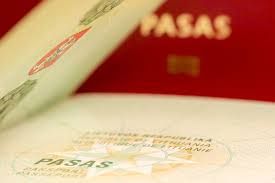 Reinstatement of Lithuanian citizenship
Reinstatement of Lithuanian citizenship Reinstatement of Lithuanian citizenship is a process of a obtaining of citizenship of Lithuania for a person in one of the available ways. Who Is Eligible for Reinstatement of Lithuanian Citizenship? A citizenship of Lithuania may...
Reinstatement of Lithuanian citizenship
Reinstatement of Lithuanian citizenship Reinstatement of Lithuanian citizenship is a process of a obtaining of citizenship of Lithuania for a person in one of the available ways. Who Is Eligible for Reinstatement of Lithuanian Citizenship? A citizenship of Lithuania may...
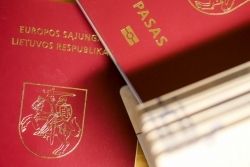 Dual Citizenship in Lithuania
Dual Citizenship in Lithuania: Exceptional Cases and Requirements Dual (double) citizenship can be allowed in Lithuania in exceptional cases only. Who Qualifies for Dual Citizenship in Lithuania? The cases when Dual citizenship in Lithuania is allowed in Lithuania include: A...
Dual Citizenship in Lithuania
Dual Citizenship in Lithuania: Exceptional Cases and Requirements Dual (double) citizenship can be allowed in Lithuania in exceptional cases only. Who Qualifies for Dual Citizenship in Lithuania? The cases when Dual citizenship in Lithuania is allowed in Lithuania include: A...
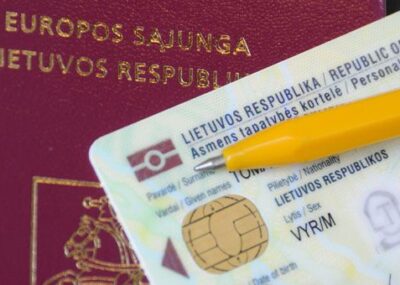 Granting the citizenship of Lithuania according to the simplified procedure
Simplified Lithuanian Citizenship Procedure for Persons of Lithuanian Origin The institute of the simplified procedure of granting the citizenship of Lithuania is applicable to persons of Lithuanian origin: it provides them a right to become citizens of Lithuania upon exclusion...
Granting the citizenship of Lithuania according to the simplified procedure
Simplified Lithuanian Citizenship Procedure for Persons of Lithuanian Origin The institute of the simplified procedure of granting the citizenship of Lithuania is applicable to persons of Lithuanian origin: it provides them a right to become citizens of Lithuania upon exclusion...
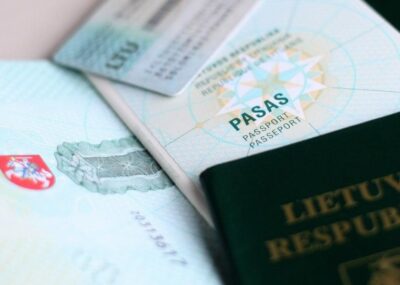 Certificate of Lithuanian descent
Lithuanian Descent Certificate: Overview A Certificate of Lithuanian descent is an important document in the processes of Granting the citizenship of Lithuania according to the simplified procedure and issuing a temporary or permanent residence permit in Lithuania, as well as...
Certificate of Lithuanian descent
Lithuanian Descent Certificate: Overview A Certificate of Lithuanian descent is an important document in the processes of Granting the citizenship of Lithuania according to the simplified procedure and issuing a temporary or permanent residence permit in Lithuania, as well as...
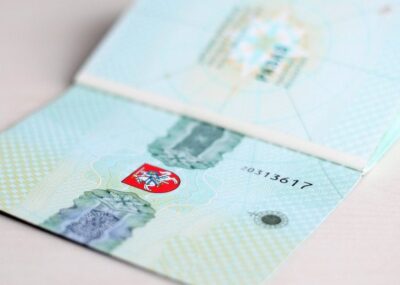 A certificate cerrtifying a right for reinstatement of the citizenship of Lithuania
A certificate cerrtifying a right for reinstatement of the citizenship of Lithuania A certificate cerrtifying a right for reinstatement of the citizenship of Lithuania is an important document in the processes of reinstatement Lithuanian citizenship and issuing a temporary or...
A certificate cerrtifying a right for reinstatement of the citizenship of Lithuania
A certificate cerrtifying a right for reinstatement of the citizenship of Lithuania A certificate cerrtifying a right for reinstatement of the citizenship of Lithuania is an important document in the processes of reinstatement Lithuanian citizenship and issuing a temporary or...
 Naturalization
Naturalization Naturalization is one of the main legal pathways to obtain Lithuanian citizenship for foreign nationals who have resided in Lithuania long-term. This process allows individuals who meet specific residency, legal, and language requirements to become Lithuanian citizens. If you...
Naturalization
Naturalization Naturalization is one of the main legal pathways to obtain Lithuanian citizenship for foreign nationals who have resided in Lithuania long-term. This process allows individuals who meet specific residency, legal, and language requirements to become Lithuanian citizens. If you...
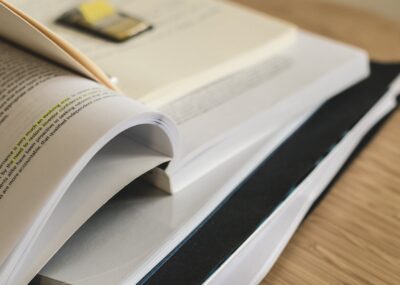 Restoration of lost citizenship of Lithuania
Restoration of lost citizenship of Lithuania Restoration of lost Lithuanian citizenship is a legal pathway available to individuals who were once citizens of the Republic of Lithuania but lost their citizenship due to acquiring another nationality or other circumstances defined...
Restoration of lost citizenship of Lithuania
Restoration of lost citizenship of Lithuania Restoration of lost Lithuanian citizenship is a legal pathway available to individuals who were once citizens of the Republic of Lithuania but lost their citizenship due to acquiring another nationality or other circumstances defined...
 A citizenship of children
Lithuanian Citizenship for Children: Conditions, Documents, and Dual Citizenship Rights The increasingly growing number of mixed families (where a husband or a wife of a citizen of Lithuania is an alien) as well as intensive emigration from Lithuania cause the...
A citizenship of children
Lithuanian Citizenship for Children: Conditions, Documents, and Dual Citizenship Rights The increasingly growing number of mixed families (where a husband or a wife of a citizen of Lithuania is an alien) as well as intensive emigration from Lithuania cause the...
 The citizen of a spouse (a husband or a wife)
Lithuanian Citizenship by Marriage: What Foreign Spouses Need to Know In course of increasingly growing number of mixed families (when citizens of Lithuania get married with citizens of foreign states), the problem of a Dual citizenship and the opportunities for...
The citizen of a spouse (a husband or a wife)
Lithuanian Citizenship by Marriage: What Foreign Spouses Need to Know In course of increasingly growing number of mixed families (when citizens of Lithuania get married with citizens of foreign states), the problem of a Dual citizenship and the opportunities for...
 Losing the citizenship of Lithuania
Losing the citizenship of Lithuania Losing Lithuanian citizenship is a significant legal process regulated by national laws. It occurs under specific circumstances that affect an individual's rights and obligations. Understanding these grounds and procedures is essential for Lithuanian citizens...
Losing the citizenship of Lithuania
Losing the citizenship of Lithuania Losing Lithuanian citizenship is a significant legal process regulated by national laws. It occurs under specific circumstances that affect an individual's rights and obligations. Understanding these grounds and procedures is essential for Lithuanian citizens...
 Renouncing the citizenship of Lithuania
Renouncing the Citizenship of Lithuania is a formal legal process available to Lithuanian citizens who no longer wish to retain their Lithuanian nationality. Whether due to long-term residence abroad, acquiring another citizenship, or personal reasons, individuals may apply to voluntarily...
Renouncing the citizenship of Lithuania
Renouncing the Citizenship of Lithuania is a formal legal process available to Lithuanian citizens who no longer wish to retain their Lithuanian nationality. Whether due to long-term residence abroad, acquiring another citizenship, or personal reasons, individuals may apply to voluntarily...
 Document Search in German Archives
Document Search in German Archives can be crucial for finding records that confirm historical facts related to an individual’s origins, escape, exile, and other important circumstances. This is especially relevant for individuals seeking to reinstate their Lithuanian citizenship, as the...
Document Search in German Archives
Document Search in German Archives can be crucial for finding records that confirm historical facts related to an individual’s origins, escape, exile, and other important circumstances. This is especially relevant for individuals seeking to reinstate their Lithuanian citizenship, as the...
 Legalization of documents; certification of documents by an Apostille
Legalization of documents; certification of documents by an Apostille In Lithuania, the legalization of documents and certification by an Apostille are crucial steps for the recognition of official papers abroad. The Apostille, issued under the Hague Convention, confirms the authenticity...
Legalization of documents; certification of documents by an Apostille
Legalization of documents; certification of documents by an Apostille In Lithuania, the legalization of documents and certification by an Apostille are crucial steps for the recognition of official papers abroad. The Apostille, issued under the Hague Convention, confirms the authenticity...
 Establishment of a fact of change of the first name or the surname in a judicial procedure
Establishment of a fact of change of the first name or the surname in a judicial procedure When applying for the reinstatement or acquisition of Lithuanian citizenship, individuals often face difficulties due to inconsistencies in the spelling of first names...
Establishment of a fact of change of the first name or the surname in a judicial procedure
Establishment of a fact of change of the first name or the surname in a judicial procedure When applying for the reinstatement or acquisition of Lithuanian citizenship, individuals often face difficulties due to inconsistencies in the spelling of first names...
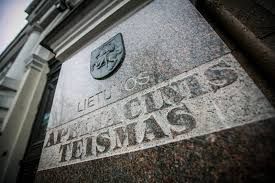 Establishment of a legal fact in a judicial procedure
Establishment of a Legal Fact in a Judicial Procedure In cases where essential documents are missing or contain discrepancies, establishing a legal fact through a judicial procedure becomes necessary. This process is crucial for individuals seeking reinstatement or acquisition of...
Establishment of a legal fact in a judicial procedure
Establishment of a Legal Fact in a Judicial Procedure In cases where essential documents are missing or contain discrepancies, establishing a legal fact through a judicial procedure becomes necessary. This process is crucial for individuals seeking reinstatement or acquisition of...
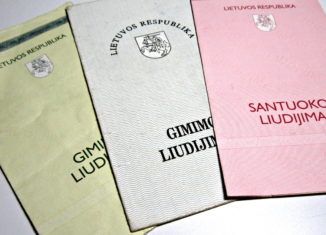 Corrections or amendments of civil status records in judicial procedure
Corrections or Amendments of Civil Status Records in Judicial Procedure Correct and accurate civil status records are essential for proving family relationships and legal identity, especially during important processes such as reinstatement or acquisition of Lithuanian citizenship and obtaining residence...
Corrections or amendments of civil status records in judicial procedure
Corrections or Amendments of Civil Status Records in Judicial Procedure Correct and accurate civil status records are essential for proving family relationships and legal identity, especially during important processes such as reinstatement or acquisition of Lithuanian citizenship and obtaining residence...
 Abstracts of some interesting cases related to citizenship of Lithuania
The grandmother of the applicant was of Jewish origin; she was born in 1919 in Lithuania and was the citizenship of Lithuania prior to 15 June 1940. The grandmother of the person left Lithuania in 1938 because of suspicion of...
Abstracts of some interesting cases related to citizenship of Lithuania
The grandmother of the applicant was of Jewish origin; she was born in 1919 in Lithuania and was the citizenship of Lithuania prior to 15 June 1940. The grandmother of the person left Lithuania in 1938 because of suspicion of...
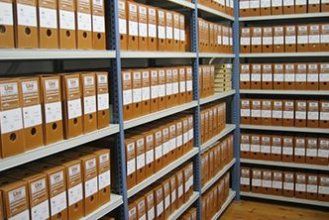 The search of documents in the archives of Lithuania
The search of documents in the archives of Lithuania The search of documents in the archives of Lithuania is an important stage in the process immigration and acquisition of Lithuanian citizenship. Both the process of acquisition of Lithuanian citizenship and...
The search of documents in the archives of Lithuania
The search of documents in the archives of Lithuania The search of documents in the archives of Lithuania is an important stage in the process immigration and acquisition of Lithuanian citizenship. Both the process of acquisition of Lithuanian citizenship and...
